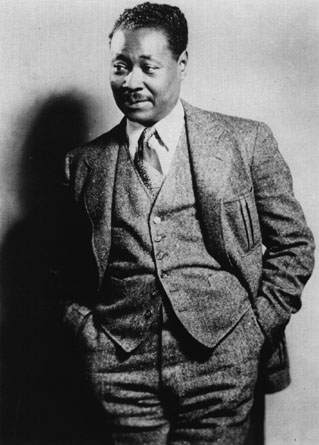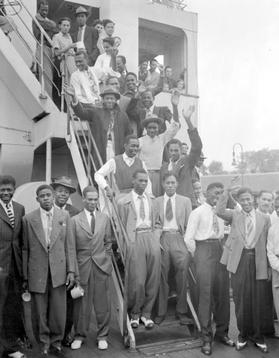
It is stunning the number of Jamaicans who live outside the country. Elizabeth Thomas-Hope, professor at the University of the West Indies, Mona, in Jamaica, said, “An estimated 1.3 million Jamaican-born persons are residing abroad, amounting to at least 48% of the population (of 2.7 million) living in Jamaica.”
This does not include the entire Jamaican diaspora. “Numbers of Jamaican-born persons plus the overseas-born generations are not really known, nor is the level of their identification with Jamaica easily quantifiable,” said Thomas-Hope in a 2017 report. “Estimates of the size of the diaspora range from 1.7 million to 3 million.”
The United States alone is home to more than one million Jamaican emigrants and their descendants. More than 30 percent of the US Jamaican community live in New York and about 25 percent in Florida. Canada has significant numbers as well, about 150,000.
It is difficult to find a Jamaican household without some relative overseas. Louise “Miss Lou” Bennett-Coverley, Jamaica’s most revered poet, said it well:
Every seckey got him jeggeh,
Every puppy got him flea.
An yuh no smady ef you no
Got family ovah sea!
Jamaicans have always found reasons and places to travel, beginning in the 1700s. In previous blog posts, I have written of Jamaicans in Cuba, Panama, Belize, Nicaragua and Sierra Leone and Liberia.
A wave of Jamaicans, for instance, traveled to Panama, first to work with the United Fruit Company, then in constructing the Panama Canal. The city of Colon has large numbers of Jamaican descendants. Many Jamaicans, such as my maternal grandfather, left for Cuba to work on sugar plantations. Jamaican communities are in Eastern Cuba, such as Santiago, Cuba’s second largest city.
But the real surge of Jamaican emigration began in the early 1960s when the United Kingdom encouraged colonists to travel to the “Motherland” to rebuild England after the devastation of World War II. Miss Lou recounted this mass migration of Jamaicans in her famous poem, Colonization in Reverse:
By de hundred, by de tousan,
From country an from town,
By de ship-load, by de plane-load,
Jamaica is Englan boun.
Dem a pour out a Jamaica;
Everybody future plan
Is fi get a big-time job
An settle in de motherland.
It is believed there are about 300,000 Jamaican-descended Britons.
The second great wave began in the latter half of the 1970s when many Jamaicans fled for fear of communism, the majority going to the United States.
Pining for home
Some of Jamaica’s most memorable poems were written by those who pined for home. Claude McKay, who migrated to the US in 1912 and was part of the Harlem Renaissance in New York, seemed to have lived in constant heartache with hopes of return:
I shall return again; I shall return
To laugh and love and watch with wonder-eyes
At golden noon the forest fires burn,
Wafting their blue-black smoke to sapphire skies.
I shall return to loiter by the streams
That bathe the brown blades of the bending grasses,
And realize once more my thousand dreams
Of waters rushing down the mountain passes.
I shall return to hear the fiddle and fife
Of village dances, dear delicious tunes
That stir the hidden depths of native life,
Stray melodies of dim remembered runes.
I shall return, I shall return again,
To ease my mind of long, long years of pain.
In Flame–Heart, McKay’s memory started to fade but he recalled Jamaica’s flowery blooms in “warm December”:
So much have I forgotten in ten years,
So much in ten brief years! I have forgot
What time the purple apples come to juice,
And what month brings the shy forget-me-not.
I have forgot the special, startling season
Of the pimento’s flowering and fruiting;
What time of year the ground doves brown the fields
And fill the noonday with their curious fluting.
I have forgotten much, but still remember
The poinsettia’s red, blood-red in warm December.
I still recall the honey-fever grass,
But cannot recollect the high days when
We rooted them out of the ping-wing path
To stop the mad bees in the rabbit pen.
I often try to think in what sweet month
The languid painted ladies used to dapple
The yellow by-road mazing from the main,
Sweet with the golden threads of the rose-apple.
I have forgotten – strange – but quite remember
The poinsettia’s red, blood-red in warm December.
What weeks, what months, what time of the mild year
We cheated school to have our fling at tops?
What days our wine-thrilled bodies pulsed with joy
Feasting upon blackberries in the copse?
Oh some I know! I have embalmed the days
Even the sacred moments when we played,
All innocent of passion, uncorrupt,
At noon and evening in the flame-heart’s shade.
We were so happy, happy, I remember,
Beneath the poinsettia’s red in warm December.
Back then, before the era of air travel, the prospects of Jamaicans returning home were dim. Once they left few had the means and the opportunity to return. A return, if only for a short stay, was an investment in time, effort and money.
Jamaicans today may not feel the same yearning pain as McKay and his cohorts. Travel is relatively inexpensive and much less arduous. The island is usually a plane stop or two away, a trip done in hours rather than days or weeks on steamship. Much of Jamaica can still be seen and enjoyed via media. Jamaican cultural expressions, music and dance especially, are no different from back home. Jamaican cuisine can easily be bought or prepared. Parts of New York City and South Florida in the US and London and Birmingham in the UK have the stamp of Jamaica. Miss Lou recalled:
Jane sey she meet so much ole frien
When she strole down New York,
Dat sh feel like is dung King Street
Or Luke Lane she eah walk.
Jamaicans abroad often live in ambivalence, some haunted by a loss of identity. In Exile, Dennis Scott seemed unable to shed the guilt:
There are patterns to assure us;
At table, familiar spices;
The garden, hardly greener;
But something has changed;
Clothes we left behind;
The old affections hang loosely.
Suddenly, mouth is dumb; eyes
Hurt; surprised, it is we
Who have changed; glad, now,
To have practiced loving
Before that departure. To travel
Is to return
To strangers.

Still, there are Jamaicans who long for the warmth, the sun and the energy, the “vibes.” Beginning in the 1990s, hundreds of those who migrated to England in the 1960s returned to Jamaica upon their retirement. For many, it was the first they had returned since leaving 30 years earlier. One confessed. “For all the years I was in England, I never liked it there. I couldn’t wait to get back.”
The figures have trended down since the new century, but the trek continues. According to Thomas-Hope, more than 10,000 Jamaicans voluntarily returned home between 2007 and 2016, most from the US.
Some, who long for return, feel like Tinga Stewart who sang, “Cause when I check it out Lawd, nuh wey nuh betta dan yard.”
Eron Henry is author of Reverend Mother, a novel. Ole Time Sumting blog was recognized with an Award of Merit by the Religion Communicators Council in April 2018
Very good story